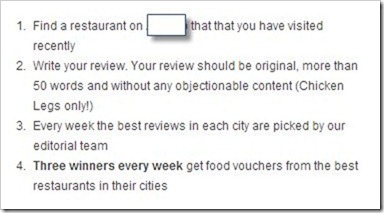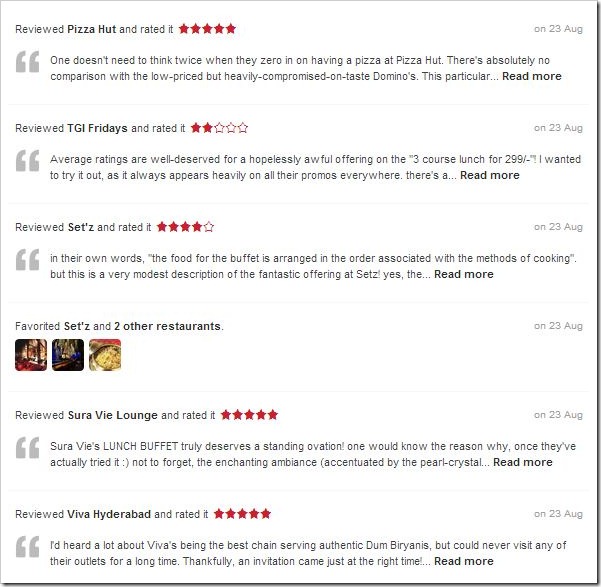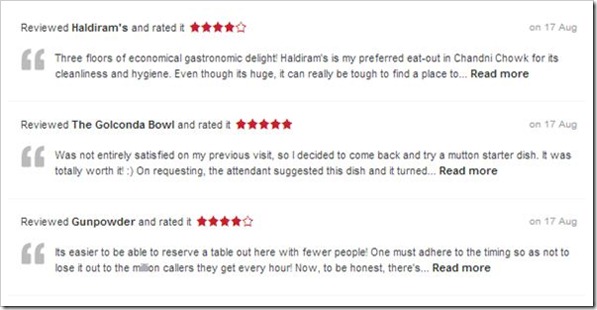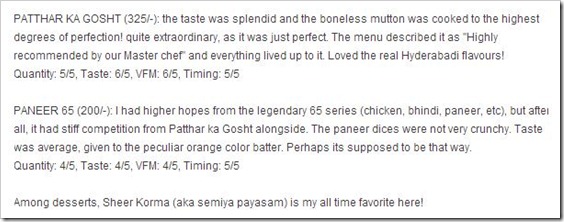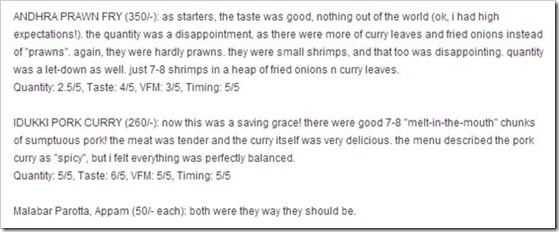Online Food Reviews – Honest views or Mindless promotions?
With the explosion of the variety and availability of authentic yet exotic cuisines in almost all major cities of India, turning to online guides to help pick and choose the most appropriate restaurant and spend some time over good conversation as well as good food, is natural.
We have a number of good food / restaurant review websites with great information about the place, driving directions even menus and cost calculators. These popular food guides of India like Burrp, Zomato, Times City even Google itself with an option to list and review restaurants give you an great option to choose your evening dinner. (There are other websites involved in providing valuable information; some of them have not been referred.)
In case of restaurants, we generally use reviews and ratings to decide or inform the overall hospitality, cost (if needed) and the overall experience through any of the restaurant review platform. Now your whole decision revolves around the reviews and ratings of a restaurant and probably accessibility to that place.
The basic motives of restaurant / food review websites (user generated content) can be summed up as follows:
- Get the real user’s perspective. (Reviews)
- Quantify hospitality experience. (Ratings)
- Help food community to identify good from bad.
- Make information accessible.
Any promotion method can be used to achieve the listed goals. Some of these promotion methods have led to creation of user generated content that is questionable as I will show you with examples given below.
Challenges for gathering user experience.
- Differentiation between real feedback and pseudo feedbacks.
- Promote user generated content but keep a tab on mindless promotion by people with vested interests.
Methods used for promoting user generated content.
- Giving out free meal vouchers for approved reviews by users.
- Points system for reviews posted by users, finally leading to redemption in gifts.
- Using pseudo names to post, by people with vested interests. [May be restaurant owners, may be website owners.]
Contents [hide]
Popular method of promotion
Image 1: Food vouchers for reviews.
Impact of promotion
Pictorial references: Reviews written in one website by a single user.
In the above quoted example one single reviewer has written 5 reviews in one day. The same reviewer just 6 days back had written reviews of another 3 restaurants.
I am quoting some parts of the reviews done on 17th Aug by same reviewer.
Image 3: Taken from detailed reviews mentioned on 17th Aug.
Image 4: Taken from detailed reviews mentioned on 17th Aug.
Multiple reviews on the same day by one of the users quoted and this is not is not just one-off example. Even though it is quite possible that user has written the reviews from past personal experiences (Memories – Considering you cannot eat out from different restaurants in same day present in different geographical locations of the city. Delhi and Gurgaon are quite far.)
However, a closer look at the reviews tells you that they have been very detailed which is very difficult to be written out of memory. So, it is clear that these reviews are prepared and submitted for promotional purposes only.
Tell me how many of us would remember the prices of the dishes if writing out of memory or even otherwise?
I am plotting the total number of reviews posted by one (same user referred earlier) user across 3 months, with each review being very detailed.
How many would really eat out at 73 places in less than 90 days? (Account was created in middle of June)? Come back and write about the same.
Questions for review platforms?
- These reviews were approved by respective platforms. Didn’t you guys see such mindless promotions?
- Did you ever think that some of the restaurants are submitting reviews by using their internet marketing team?
- Do you know and still allowed this to happen?
- If someone restaurant decides to run a negative campaign against another, how would you detect if you have no clue to differentiate between apples and oranges?
Headache for Users?
- How will I get the true picture?
- Do I spend time to check reviews about a restaurant and then spend more to check genuineness of the reviews? Isn’t it the work of the platform?
- Can I trust this platform at all?
We have seen unwanted/fake reviews bothering various other global websites as well – Yelp, urbanspoon, zagat and others and it would surely bother Indian cousins as well.
A thought on this matter from the respective website’s admins/owners would go a long way in keeping the faith intact and would create an endurable platform for interactions and information on online food business. It would also be better for naive visitors to trust and go out for a recommended restaurant.
[About the Author: This guest post has been written by Nrupal Das. He is a co-founder of Diffion Consulting which owns and operates a network of websites in various domains, which include 27coupons.com, broadbandplan.in amongst others]

